This fall, nearly 50 students in Engineering 112: Introduction to Engineering Experimentation explored Lake Katharine as a living lab for campus sustainability.
For the first time, Dr. Kyle Luthy and Dr. Joshua Dickenson teamed up to teach two sections of the course, which is designed to introduce students to engineering at Wake Forest. Both incorporated unique problem-based learning projects at the biodiverse wetlands that were once a scenic and recreational focal point for the family and friends of Katharine and RJ Reynolds.
Midway through the semester, the 24 students in Dr. Luthy’s section swapped places with the 24 students in Dr. Dickenson’s course, giving students the chance to conduct two different sets of fieldwork at this sustainability learning space in the Historic Reynolda district.
Sensing the Lake
Dr. Luthy has taught EGR 112 for multiple years now, collaborating with the Office of Sustainability to deploy sensors at sustainability learning spaces like the Campus Garden as well as the Reynolda Gardens greenhouse. In the spring, he received a Champions of Change award for his multi-year commitment to engaged and experiential learning for sustainability at Wake Forest.
This semester, his students went into the field – and in some adventurous cases, directly into the water – to gather metrics like depth, turbidity, pH, and solar irradiance to form a comprehensive picture of the ecosystem.
“Here, we’re going into the lake to get that time series in situ and then you can correlate it with weather patterns, beaver dams, stuff like that,” said Dr. Luthy. “We’re characterizing the lake and how it is over time, so it’ll be neat when we have the data from earlier in the semester and we’ll have data now that it’s getting colder and the leaves have fallen.”

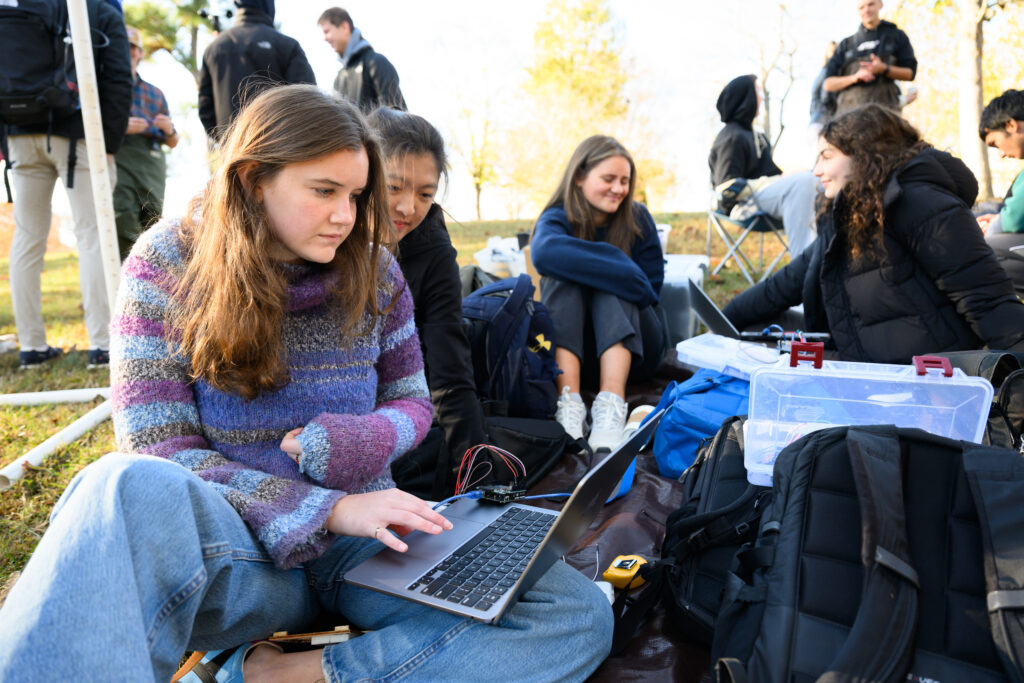
The unique design of the two sections marks a milestone for our Campus Engaged Learning program: the facilitation of two simultaneous and semester-long, problem-based learning projects at Lake Katharine.
“I’ve liked that they are pretty similar in the overall goal of the classes, in the concepts,” said Will Gerardi, a first-year student who completed Dr. Dickenson’s section first, then took Dr. Luthy’s. “But it’s nice that the sensing project goes a bit more into the technology of collecting data and then the environmental project goes more into planning and experimenting with different filters.”
Water Quality for the Reynolds Family
Dr. Dickenson’s section engaged students in water quality testing at the lake with an historical element. For their final deliverable, students were tasked with using water quality data to design a water filtration management system for their imagined clients – Katharine and RJ Reynolds.
In order to bridge the anachronistic gap, the Office of Sustainability’s Engaged & Experiential Learning Manager, Krista Stump, served as the “client liaison,” answering student questions about the site and its uses for the Reynolds family.
“Krista had really wonderful availability to meet with students and enter into the narrative that we were building to creatively allow the students to think about the engineering challenge that was at hand,” said Dr. Dickenson. “She was a great networker within the university, coordinating with Reynolda and Facilities, Real Estate, and Planning to ensure that they knew when we were going to be present at the site, that we had the appropriate permissions to have the students work in the lake and sample from the lake, and not run into any surprises when we’re out there. She was also great at integrating with museum staff and helping me look into some background information for the project.”
When exploring possibilities for his section of the course, Dr. Dickenson was struck by the historic connection and physical proximity between the Reynolda campus and Historic District.
“I love the fact that Lake Katharine is tied into the Reynolds family. And the Reynolds family has a significant history here in Winston-Salem in terms of the industry that they were engaged in and their contributions to the community,” he said. “It’s also wonderful in terms of proximity. The students are able to walk to the lake. They were able to go and collect samples when they needed for the water quality experiments. We would process the samples in the lab, but the students could easily access the lake, grab some samples and come back.”
The palpable energy upon re-entering the lab was something Dr. Dickenson noticed.
“Getting the students out in the field in a practical way makes it a really enjoyable course experience for our students,” Dickenson said. “I can always tell the days that we have been on site earlier by the extra energy that the students give to the learning process when we are back in the lab.”
At the end of the semester, students in Dr. Dickenson’s section were asked to use a creative medium for their presentations. Some students chose to mimic an episode of Shark Tank, with RJ and Katharine Reynolds taking the judges seat in place of familiar faces like Mark Cuban. Others created short video stories or cover songs to present their water filtration system designs.
Continuing the Collaboration
Dr. Luthy and Dr. Dickenson plan to utilize Lake Katharine again in the spring to iterate on the collaboration. With coordination assistance from the Office of Sustainability, they’ll introduce another group of students to the campus as a living lab.
With one section being more lab-based and one more field-based, the split model of the course gives students the opportunity to explore their interests early on in their career at Wake Forest.
“Some people are going to be drawn to one and some will be drawn to the other,” Dr. Luthy said. “So by giving them all of that exposure, hopefully, that’s helping guide them to what their interests are and where they would want to go with an engineering degree.”
“Giving them that experience broadly, early, I think is important,” he continued. “We need all of these people to do all of these roles. You just have to figure out what’s right for you.”
Related Posts
- Wake Forest Team Members Present at the 20th Annual AASHE Conference
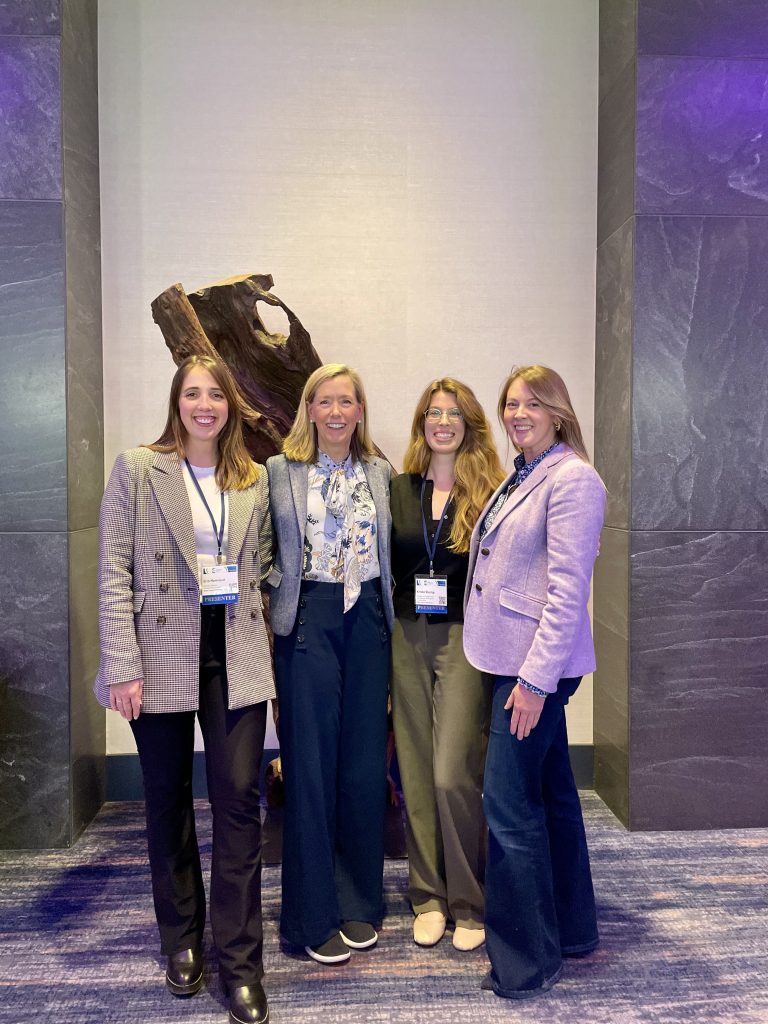 From October 22 – 24, Wake Forest sustainability staff members joined peers in Minneapolis for the 20th annual conference of […]
From October 22 – 24, Wake Forest sustainability staff members joined peers in Minneapolis for the 20th annual conference of […] - 2025 Sustainability Alumni Career Panel
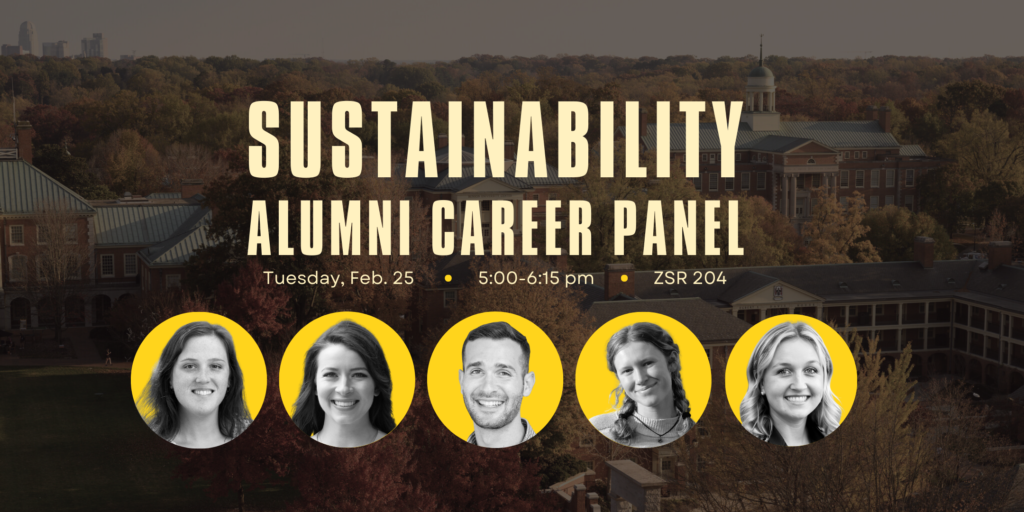 A panel of five Wake Forest graduates will share their career journeys with students at our
A panel of five Wake Forest graduates will share their career journeys with students at our - Nearly 50 Students Wade into Campus Engaged Learning at Lake Katharine
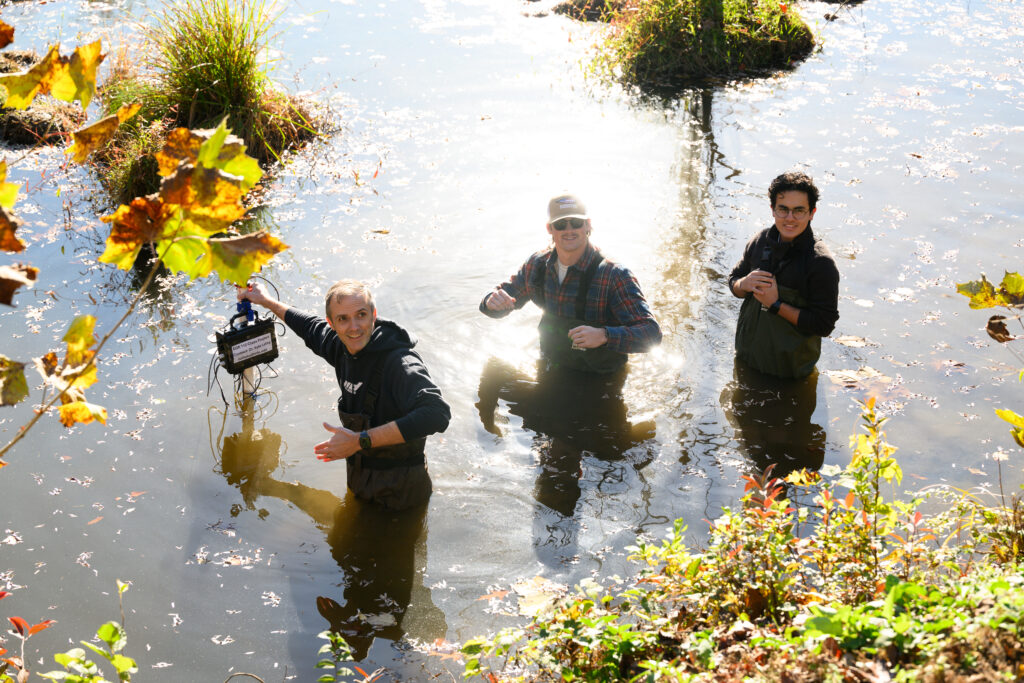 This fall, nearly 50 students in Engineering 112: Introduction to Engineering Experimentation explored Lake Katharine as a living lab for […]
This fall, nearly 50 students in Engineering 112: Introduction to Engineering Experimentation explored Lake Katharine as a living lab for […] - Magnolias Curriculum Project: Cohort of 13 Faculty Members Explores Sustainability Across the Disciplines
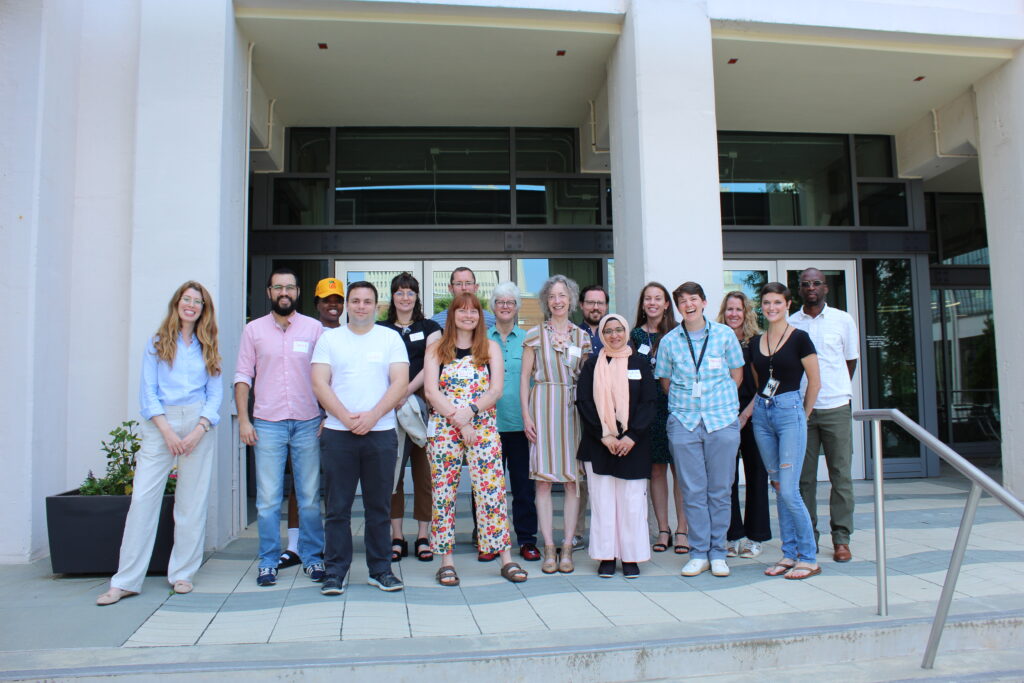 Each spring, the Office of Sustainability hosts the Magnolias Curriculum Workshop for faculty who are seeking to incorporate sustainability […]
Each spring, the Office of Sustainability hosts the Magnolias Curriculum Workshop for faculty who are seeking to incorporate sustainability […] - 12 Champions of Change Honored at 11th Annual Campus Sustainability Awards
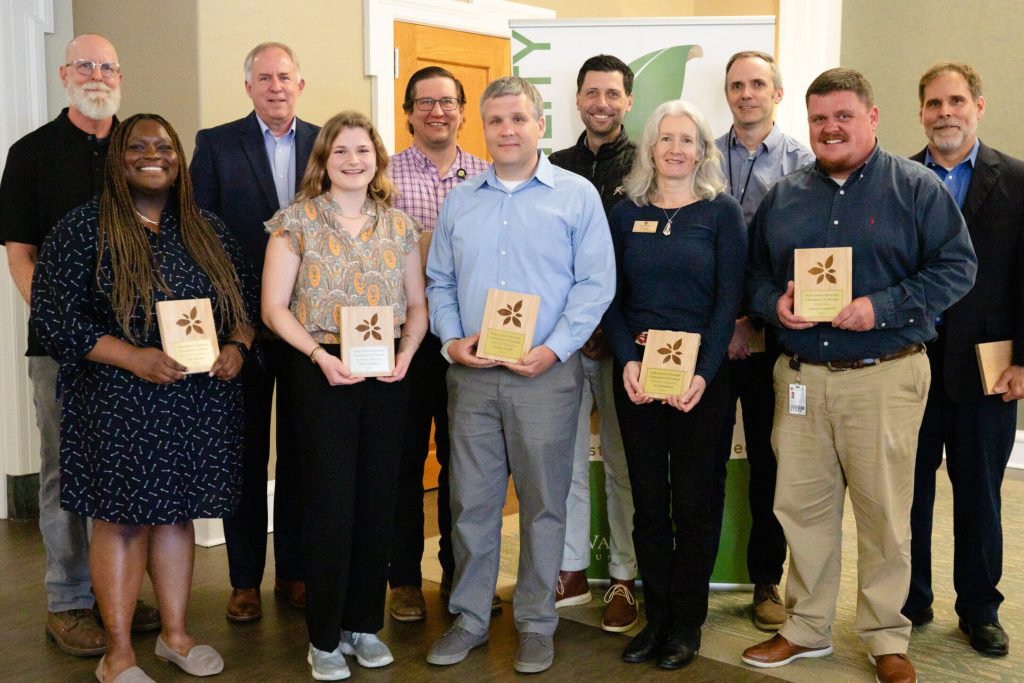 On April 9, the Office of Sustainability hosted the 11th annual Champions of Change Campus Sustainability Awards. Each year […]
On April 9, the Office of Sustainability hosted the 11th annual Champions of Change Campus Sustainability Awards. Each year […] - Welcome Sarah Rodgers, Outdoor Learning Spaces Coordinator
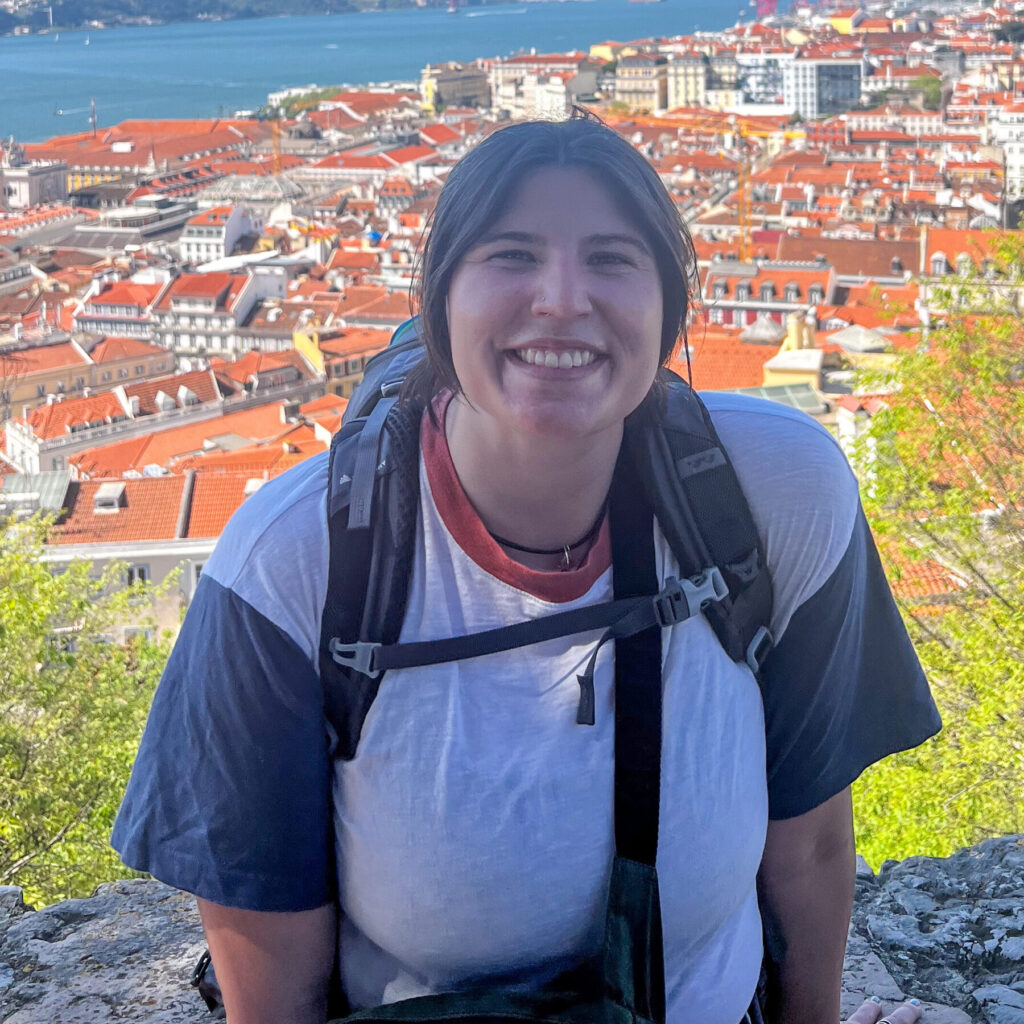 Sarah Rodgers joined the Office of Sustainability team on March 1 as our Outdoor Learning Spaces Coordinator. In this role, […]
Sarah Rodgers joined the Office of Sustainability team on March 1 as our Outdoor Learning Spaces Coordinator. In this role, […]
